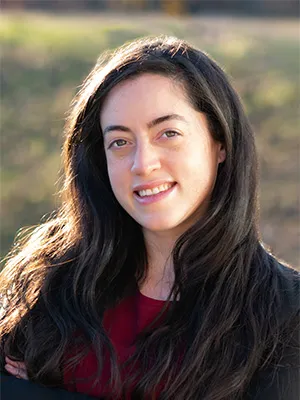
Paulina Cardaci
Academic Rank:
Instructor
Department:
Biology & Chemistry
School:
Health Professions & Natural Sciences
Office: SH-207
Phone: 973-328-5372
Email: pcardaci@ccm.edu
Education: M.S., Seton Hall University B.S., Rutgers University
Hired: 2019
When students walk in to Paulina Cardaci’s anatomy and physiology class at County College of Morris (CCM), they may be met with a quick joke or caring smile. But most of all, Cardaci hopes they walk out with critical thinking skills and a practical understanding of biology.Cardaci earned a bachelor’s degree in animal science from Rutgers University with the intention to become a veterinarian. Although accepted to study at the University of Glasgow for her master’s, a family emergency drew her to search for a local graduate program.
“My father had a heart attack just before I was to leave for the program,” recalls Cardaci. “This became a catalyst for my future as a professor.”
Although being an educator had not been her initial plan, Cardaci became a well-respected teacher assistant while pursuing her master’s degree at Seton Hall University. She was a finalist for the 2014 Teacher Assistant of the Year award. “I just fell in love with teaching,” she recalls.
Cardaci admits that when she first started she was unsure of herself as an educator, but that quickly changed. “The first time I stood in front of a group of students, I was terrified,” she says. “But it built my confidence when I looked around the room and saw students taking notes and following along.”
Cardaci enjoys filling her classroom with both laughter and knowledge. “I love cracking jokes and embracing my full personality when I am teaching,” she says. “I believe it’s important to bring energy into the classroom to get my students engaged.”
Many of her students hope to pursue careers in the medical field and are highly committed to doing well. “They walk into the classroom knowing where they want to go,” says Cardaci.
Because of this, she strives to make her courses clinically relevant. “My students need to know what to expect when they walk into a hospital or clinic,” she adds. “They need to know how our body should work, and when it doesn’t what they can expect to see.”
Courses Taught: BIO-101 (Anatomy & Physiology I); BIO-102 (Anatomy & Physiology II); BIO-133 (Human Biology); BIO-215 (Microbiology)